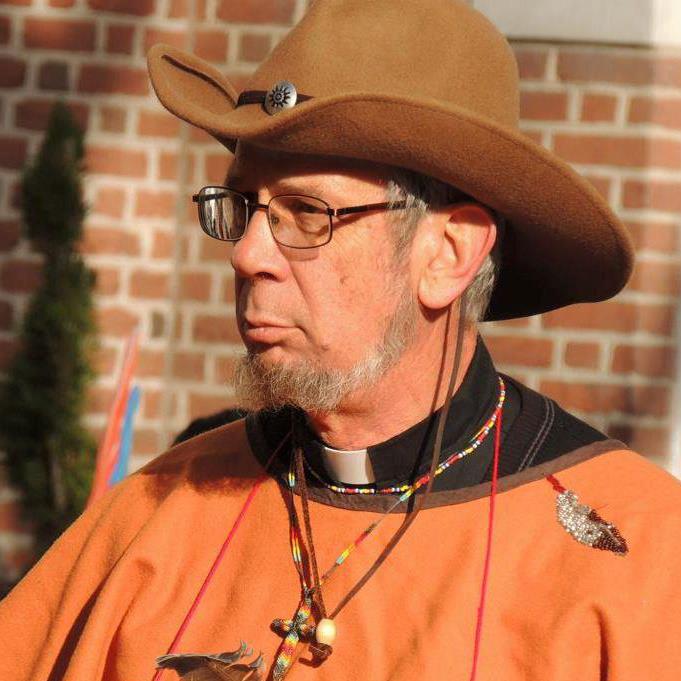Available in papperback and as e-books through all major on-line stores, (Amazaon, B&N, Lulu,etc.) POD available in dozens of countries. Click my photo.


Short Stories by Bro. Joshua, Author of Hawk Dancer
A new story is posted every 30-90 days
Introducing Richard White
These are the opening paragraphs of my first novel, Hawk Dancer.
Setting: The city of Menominee in Michigan's Upper Peninsula, 1934 (population 23,700 at that time.)
Richard White sat alone one December evening in 1934, at the age of seventeen, thinking of the stories Great Uncle John Bird had told over the years. Bird was half Ojibwe and half Norwegian, the brother of Richard’s paternal Grandfather, Alfred White. White Clawed Eagle, a name taken from Alfred’s lamenting, more commonly referred to as a Vision Quest or Sending out a Voice, provided his last name in later years. In a less ceremonial custom, Uncle John was called “Wounded-Bird” ever since he jumped out of an oak tree intent on flying. Euro-America would have learned the elaborate and dignified manner in which names are received, had they conformed to Native ways.
Maymahongebe, Richard White’s Great-Grandfather never returned from a journey to collect government rations promised the Ojibwe in treaty. This dispossession drove his wife mad. The government put her into an off reservation asylum and placed the boys in the Indian mission boarding school.
The slender six-foot teen lit two kerosene lamps, lowered both wicks, then sprawled out in an over stuffed chair while his feet rested on the matching ottoman stool. His arms fell over the sides. A tweed suit coat hung limp from the doorknob; the matching necktie draped the coat’s collar. Richard laid his head back on the chair and stared at the smoked stained wall and ceiling, exhausted from the events of the past three days and weary of the well-meant interference of relatives. A black and white wedding picture of a couple, barely older than he, hung on the wall in a thin oak frame.
In his drowsy state, the picture sometimes sank into the wall; other times it protruded the smoked wall. Until tonight he could not fully comprehend that the couple in the picture was his parents. Those eyes, which obligingly looked out toward an invisible camera that fixed their focus forever, began to look directly into his. He cocked his head over the right of the chair, then far to the left. The eyes had life following their son from right to left.
Their real eyes were sewn shut as they lay in their oak stained, highly polished caskets. His mother wore the blue dress she wore to church last Easter, while his father was in his black suit and a white shirt. It was all so proper. Stiff, hands folded straight; none of it reflected the jovial couple that laughed, played jokes on their son and danced together before sitting down for dinner.
“Shall I cut your meat for you?” Mrs. White teased her tall wisp of a son in front of company. Richard pulled his plate in closer to himself half embarrassed, half enjoying the joke. After dinner the three of them entertained the guests. Richard played the violin from his waist so he could sing; his mother sat at the spinet and her spouse grabbed either a guitar or banjo, and sometimes borrowed the violin. Richard rested the violin on his shoulder, raised the bow in the air commanding attention by his silence. His head rocked back and forth followed by the upper torso as the spirit of the music filled him. Slowly the bow moved towards the strings as the violin took its classical position under Richard’s chin, then a sudden brush of the bow gave the first note, followed by a long draw, ha – va. This was repeated for the next word, slowly, na – ge – la. The guest felt the anticipated voice. With intense deliberateness, the bow repeated this pattern three times and then stopped. Everyone stared as the violin was lowered to the boy’s hip. A young, tender, yet rich baritone resonated from his barely opened mouth, “Hava nagela,” a pause, “Hava nagela,” done a bit higher, “Hava nagela” louder this time, just as slow with the mouth widening some, inviting another to join in the song. A tensely held tambourine came in contact with his father’s thigh as the father lent his tenor voice for a repeat of the words. The piano started up and the mother gave harmony in alto. Round by round the song picked up its pace.
The piano quit suddenly, the tambourine was set down leaving the violinist to step forward. The violin, raised back up to the chin, began the song over again as Mr. White whisked out a handkerchief and led a circle dance with his wife who pulled the guests into the dance. The violinist picked up the pace again and again until no dancers were left. The contemplative slow movements that opened the song closed it.
The caskets were taken to a cold, gray stone building to rest with the others who died that winter waiting for spring to be placed into their final resting places.
The lone youth held the phantom instrument and bow in the air a moment realizing this song would never be played again with his parents; then he eased the implement down. The invisible violin dropped from his left hand; his fingers slowly released the bow. Sleep, his only escape from the pain, would not come. He thought he heard his mother in the kitchen so he got up and went downstairs. Bright sunlight flowed through the kitchen window with no sign of the usual frosted corners. It was strange nothing was said about how late into the morning he slept. A covered pan waited for Richard on the back of the stove. He reached for the lid and woke with a start. The young couple still smiled at him from their framed station on the wall.